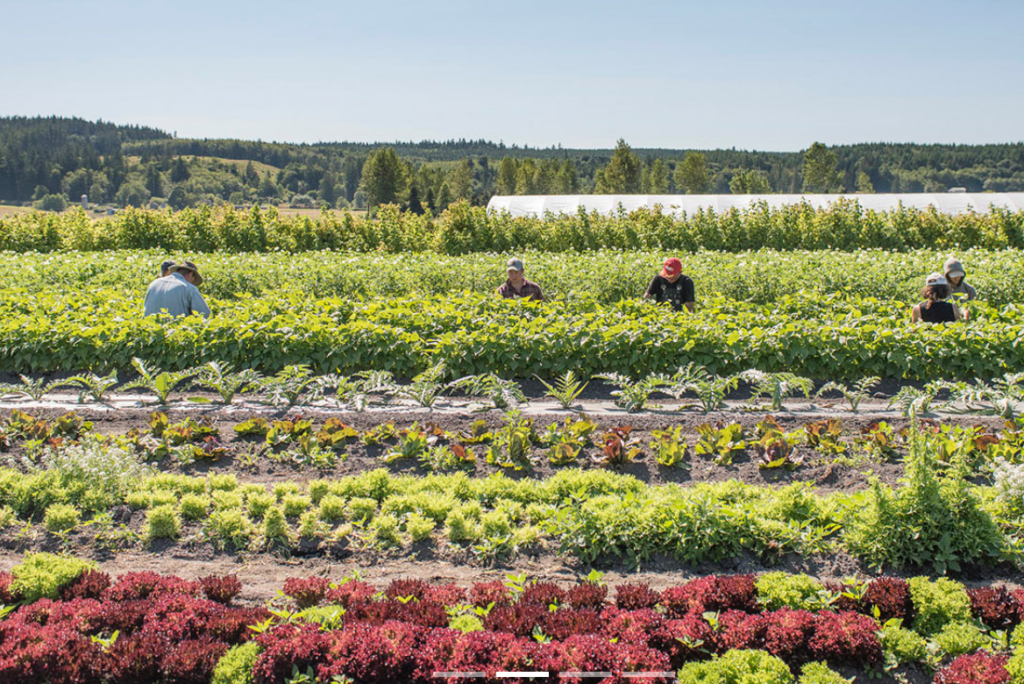
Insect Vectored Viruses and Their Management in Vegetables
February 10, 2021 @ 2:00 pm - 3:30 pm

Join eOrganic for a webinar on insect-vectored viruses in vegetables and how to manage them! It’s free and open to everyone, and advance registration is required.
Register now at https://oregonstate.zoom.us/webinar/register/WN_z_ydWiHWQli59OJpfRo-ww
About the Webinar
This webinar is part of a series of 4 webinars on biological control in vegetables as part of a NIFA OREI funded project. Find them all on the eOrganic webinar schedule. This webinar will focus on managing viruses in tomato and squash.
- The tobacco thrips (Frankliniella fusca) and the western flower thrips (F. occidentalis) are principal vectors of tomato spotted wilt orthotospovirus (TSWV) in tomato in the spring season. The sweetpotato whitefly, Bemisia tabaci (Gennadius) is another important pest affecting vegetable production in the fall season. Whiteflies also transmits a suite of viruses.
- Thrips-transmitted TSWV causes a severe disease –spotted wilt in tomato in the spring. This problem is largely contained due to the use of resistant cultivars. However, resistant cultivars do not affect thrips, and management of direct feeding by thrips remains a concern. Late season feeding particularly on fruits has garnered a lot of attention, as fruits often display feeding scars and ringspots due to TSWV infection even in resistant cultivars.
- Tomato yellow leaf curl virus (TYLCV) is arguably the most important pathogen affecting tomato production in the fall. Numerous TYLCV-resistant cultivars are currently available. TYLCV-resistant cultivars are not immune to TYLCV but exhibit mild symptoms following TYLCV infection. They do not possess any resistance to whiteflies. Consequently, they cannot serve as a standalone management option. It becomes even more critical to manage whiteflies on tomato in organic settings.
- Whiteflies transmit viruses viz., squash vein yellowing virus (SqVYV), cucurbit yellow stunting disorder virus (CYSDV), and cucurbit leaf crumple virus (CuLCrV) to squash. Unlike tomato, there is no available host resistance in squash.
- In this study, we explored the usefulness of Phytoseiulus persimilis, a specialist predator on the management of thrips- and whitefly-transmitted viruses in tomato and squash. Field trials were conducted in spring and fall of 2019 and 2020. Results of those trials will be discussed in the webinar.
About the Presenters
Rajagopalbabu Srinivasan, Professor, Dept. of Entomology, UGA, 1109 Experiment Street, Griffin, GA 30223-1797, babusri@uga.edu, 770-229-3099, fax 770-228-7287.
He conducts basic and applied research on important thrips, whitefly, and aphid-transmitted plant viruses affecting several crops in Georgia. His lab is currently involved in studying the process of virus transmission by vectors and management of insect-transmitted viruses.
Bhabesh Dutta, Associate Professor, Department of Plant Pathology, UGA, 0105 Horticulture Bldg. Tifton, GA 31793, bhabesh@uga.edu, (229) 386-7495, Fax: 229-386-7415. His extension program focuses on the management of the multitude of plant diseases that affect over 20 different vegetable crops produced in Georgia. Research efforts include developing novel management practices including conventional, micronutrients, and nanotechnology-based formulations that up-regulate plant defense responses.
Timothy Coolong, Associate Professor, Horticulture Department, UGA, 1111 Plant ScienceBuilding, 120 Carlton Street, Athens, GA 30602, tcoolong@uga.edu, 706-542-2471, Fax: 706-542-0624. His program focuses on serving the vegetable industry in Georgia by conducting outreach and applied research focusing on innovative tactics for vegetable production. His interests are varied and include irrigation and fertility management, plasticulture systems, postharvest evaluation,
and germplasm evaluation in more than a dozen crops. He is interested in interdisciplinary approaches to solving problems facing vegetable growers.
Published December 28, 2020
This is an eOrganic article and was reviewed for compliance with National Organic Program regulations by members of the eOrganic community. Always check with your organic certification agency before adopting new practices or using new materials. For more information, refer to eOrganic’s articles on organic certification.

